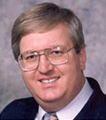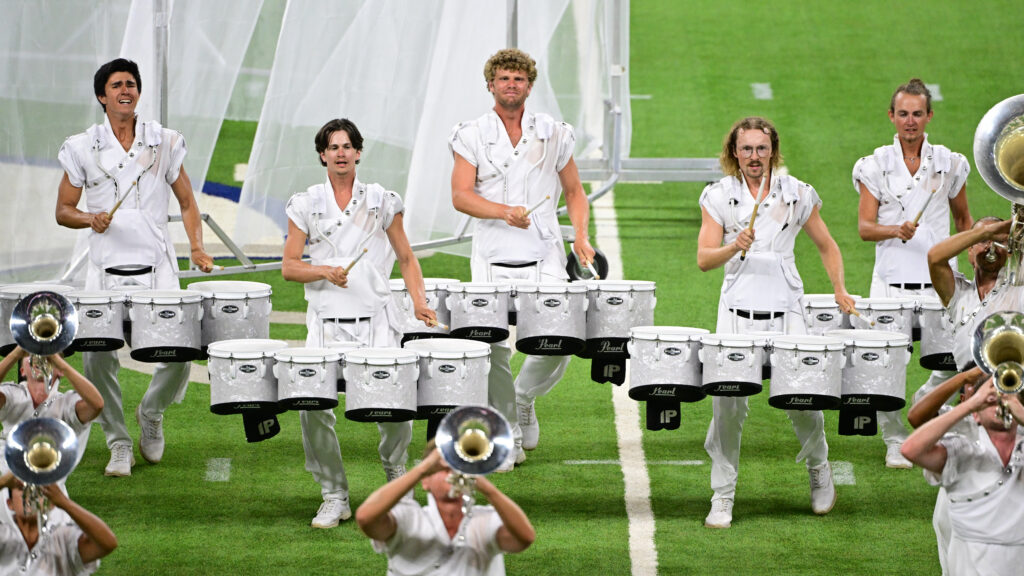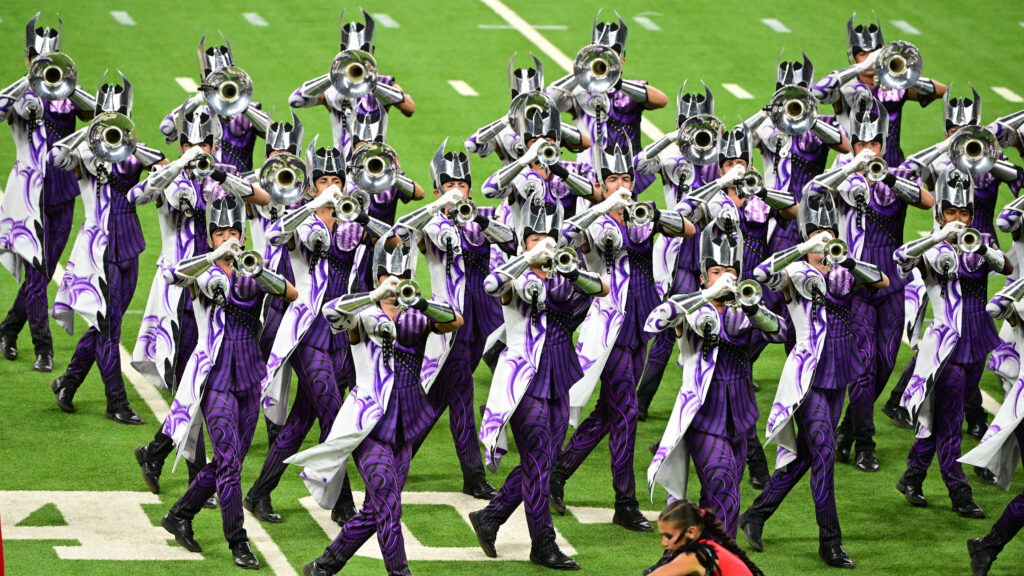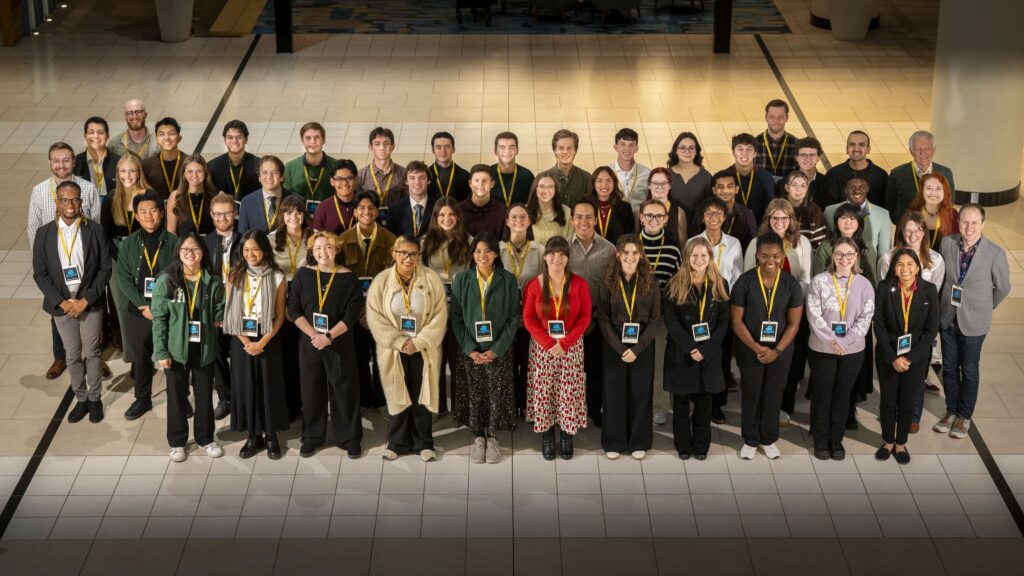From Jan. 24-27, instructors of Drum Corps International member corps and the DCI Board of Directors will meet in Orlando to consider 10 new rule proposals.
DCI.org columnist Michael Boo breaks down each of the items that will be considered and gives his insight and opinions on how passage of each rule might affect the direction of the drum corps activity.
Part I: Allowed use of electronic instruments
One of the most talked about items at the 2007 DCI Annual meeting in Atlanta was a proposal that if passed would allow the use of electronic instruments in Drum Corps International competitions. Many were shocked to see the DCI Board of Directors vote in a 10-10 tie on the proposal which without a majority vote, ultimately caused it to fail. But for the lack of one additional “yes” vote, we probably would be getting ready to see the use of electronic instruments on the field in 2008.
It will be interesting to see in Orlando if the passing year persuaded any voters one way or the other. If the majority votes “yes,” electronics will be implemented in 2009, giving corps an additional year to figure out how to incorporate the new instruments.
The current proposal on the table would allow for electronic keyboards, synthesizers, electronic drum sets and other electronic instruments …
The Cadets’ director George Hopkins submitted the electronics proposals for last year and this year. The current proposal on the table would allow for electronic keyboards, synthesizers, electronic drum sets and other electronic instruments, provided that the performers of the instruments are present and performing live and in real time.
While the idea of having a performer “present and performing live and in real time” might seem like an obvious given, Hopkins is addressing the concept of sequencing, which in many pop music circles involves someone triggering a pre-engineered event that is then carried out by a computer or synthesizer rather than the continued performance of the musician. One “stroke” would have to equal one “response” as opposed to unleashing a series of musical responses or sequences.
To avoid this particular can or worms, the proposal specifically states that pre-recorded sounds or sounds sequenced from other sources such as voices, wind and percussion instruments would not be allowed. That would prevent a corps from creating an entire vocal choir out of a synthesized patch and would further negate the replication of an artificial brass choir or percussion ensemble to augment the corps members on the field. It would also address the concerns of a recording industry that has been increasingly more vocal about the use of sounds that might be copyrighted, including samples from other artists’ works. In addition, woodwind and string instruments that are currently not legal would not be made legal under this proposal.
In the proposal, Hopkins makes a distinction between sampling music, which wouldn’t be allowed, and sampling sound effects, which would be allowed. Still, it is expected that debate will ensue about where to draw the line and how the creation of sounds would be policed. While a choir of trumpets would not be allowed, how would one define a sound that is artificial but used in such a way as to create the impression of a larger brass sound? That sort of question may be the type people can expect to be debated in Orlando.
If this proposal passes, it would open up a whole new library of sounds for percussion arrangers to utilize. They might include funky electronic drum pads, realistic church bells, bird sounds (electronically created through a series of individual strokes as opposed to taking a recorder into an aviary and hitting a button), and maybe even a walking bass sound (but not re-creating an actual electric or string bass) to augment a jazz classic.
As written in the proposal, Hopkins believes that present restrictions on electronics hamper the creative palette of arrangers and that the availability of these sounds would open new avenues of expression. Marching bands and winter indoor marching percussion lines have been using synthesizers for many years and have demonstrated that such sounds can add another dimension to the sound output. Electronic keyboards (such as KAT keyboards that are played with mallets just like a marimba or vibraphone), synthesizers and electronic drum sets would not be considered things that are unto themselves as a whole new section, but could be integrated into the front ensemble as additional sounds available to the arranger.
Hopkins has long been an advocate of using resources that are available to the larger creative community, and this proposal follows up on that commitment. He points out that some might not like what has occurred in the use of amplification, but we’ve already opened the door to new ideas and approaches in allowing for amplification.
Many will regard the addition of synthesizers and electronics as just another development in pit orchestration, being comfortable with witnessing such instruments on the marching band field for several years now. Their attitude might be coalesced in the opinion that “drum corps is whatever drum corps becomes.” Those who consider themselves more as purists in nature, may regard this proposal as a step in removing another vestige of what makes drum corps unique.
As we’ve seen this proposal come up in the past, no matter how the vote turns out this year, the result is destined to fry a great deal of bandwidth.
Coming soon on DCI.org: Part II of the “Inside the 2008 DCI rules proposals” will look at two different proposals that will attempt to legalize new effects including amplifying brass instruments and allowing for the use of water on the field. Parts III & IV look at three proposals that deal with placing restrictions on amplification and soundboard operation. Part V will examine the four remaining proposals that deal with topics including judges, performer age limits and length of performances.
Part I: Allowed use of electronic instruments
One of the most talked about items at the 2007 DCI Annual meeting in Atlanta was a proposal that if passed would allow the use of electronic instruments in Drum Corps International competitions. Many were shocked to see the DCI Board of Directors vote in a 10-10 tie on the proposal which without a majority vote, ultimately caused it to fail. But for the lack of one additional “yes” vote, we probably would be getting ready to see the use of electronic instruments on the field in 2008.
It will be interesting to see in Orlando if the passing year persuaded any voters one way or the other. If the majority votes “yes,” electronics will be implemented in 2009, giving corps an additional year to figure out how to incorporate the new instruments.
The current proposal on the table would allow for electronic keyboards, synthesizers, electronic drum sets and other electronic instruments …
The Cadets’ director George Hopkins submitted the electronics proposals for last year and this year. The current proposal on the table would allow for electronic keyboards, synthesizers, electronic drum sets and other electronic instruments, provided that the performers of the instruments are present and performing live and in real time.
While the idea of having a performer “present and performing live and in real time” might seem like an obvious given, Hopkins is addressing the concept of sequencing, which in many pop music circles involves someone triggering a pre-engineered event that is then carried out by a computer or synthesizer rather than the continued performance of the musician. One “stroke” would have to equal one “response” as opposed to unleashing a series of musical responses or sequences.
To avoid this particular can or worms, the proposal specifically states that pre-recorded sounds or sounds sequenced from other sources such as voices, wind and percussion instruments would not be allowed. That would prevent a corps from creating an entire vocal choir out of a synthesized patch and would further negate the replication of an artificial brass choir or percussion ensemble to augment the corps members on the field. It would also address the concerns of a recording industry that has been increasingly more vocal about the use of sounds that might be copyrighted, including samples from other artists’ works. In addition, woodwind and string instruments that are currently not legal would not be made legal under this proposal.
In the proposal, Hopkins makes a distinction between sampling music, which wouldn’t be allowed, and sampling sound effects, which would be allowed. Still, it is expected that debate will ensue about where to draw the line and how the creation of sounds would be policed. While a choir of trumpets would not be allowed, how would one define a sound that is artificial but used in such a way as to create the impression of a larger brass sound? That sort of question may be the type people can expect to be debated in Orlando.
If this proposal passes, it would open up a whole new library of sounds for percussion arrangers to utilize. They might include funky electronic drum pads, realistic church bells, bird sounds (electronically created through a series of individual strokes as opposed to taking a recorder into an aviary and hitting a button), and maybe even a walking bass sound (but not re-creating an actual electric or string bass) to augment a jazz classic.
As written in the proposal, Hopkins believes that present restrictions on electronics hamper the creative palette of arrangers and that the availability of these sounds would open new avenues of expression. Marching bands and winter indoor marching percussion lines have been using synthesizers for many years and have demonstrated that such sounds can add another dimension to the sound output. Electronic keyboards (such as KAT keyboards that are played with mallets just like a marimba or vibraphone), synthesizers and electronic drum sets would not be considered things that are unto themselves as a whole new section, but could be integrated into the front ensemble as additional sounds available to the arranger.
Hopkins has long been an advocate of using resources that are available to the larger creative community, and this proposal follows up on that commitment. He points out that some might not like what has occurred in the use of amplification, but we’ve already opened the door to new ideas and approaches in allowing for amplification.
Many will regard the addition of synthesizers and electronics as just another development in pit orchestration, being comfortable with witnessing such instruments on the marching band field for several years now. Their attitude might be coalesced in the opinion that “drum corps is whatever drum corps becomes.” Those who consider themselves more as purists in nature, may regard this proposal as a step in removing another vestige of what makes drum corps unique.
As we’ve seen this proposal come up in the past, no matter how the vote turns out this year, the result is destined to fry a great deal of bandwidth.
Coming soon on DCI.org: Part II of the “Inside the 2008 DCI rules proposals” will look at two different proposals that will attempt to legalize new effects including amplifying brass instruments and allowing for the use of water on the field. Parts III & IV look at three proposals that deal with placing restrictions on amplification and soundboard operation. Part V will examine the four remaining proposals that deal with topics including judges, performer age limits and length of performances.
 Michael Boo was a member of the Cavaliers from 1975-1977. He has written about the drum corps activity for more than a quarter century and serves as a staff writer for various Drum Corps International print and Web projects. Boo has written for numerous other publications and has published an honors-winning book on the history of figure skating.
Michael Boo was a member of the Cavaliers from 1975-1977. He has written about the drum corps activity for more than a quarter century and serves as a staff writer for various Drum Corps International print and Web projects. Boo has written for numerous other publications and has published an honors-winning book on the history of figure skating.As an accomplished composer, Boo holds a bachelor’s degree in music education and a master’s degree in music theory and composition. He resides in Chesterton, Ind.





